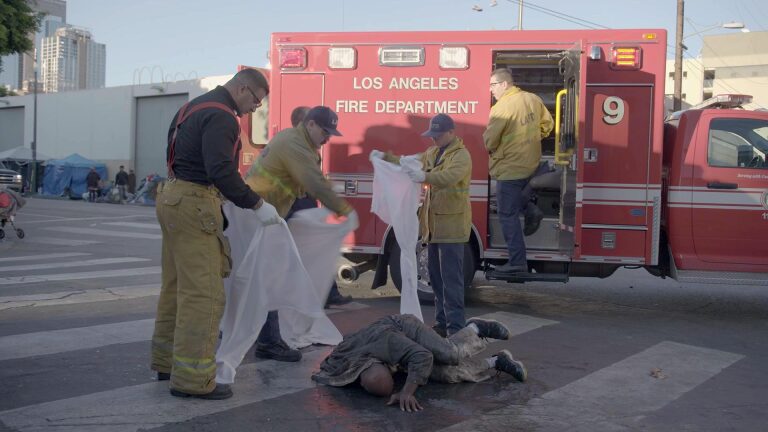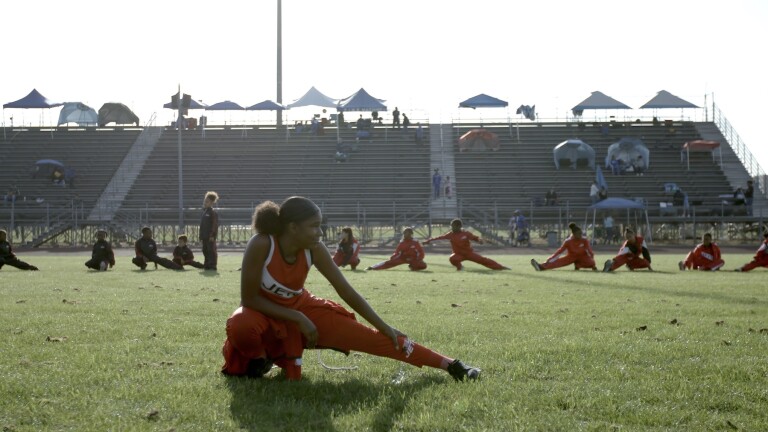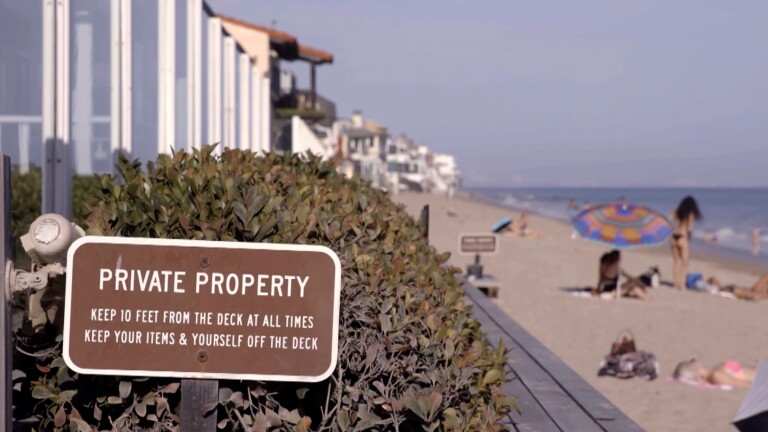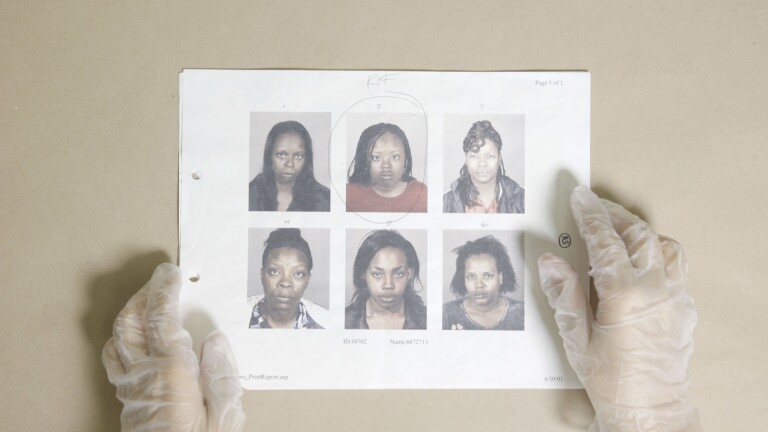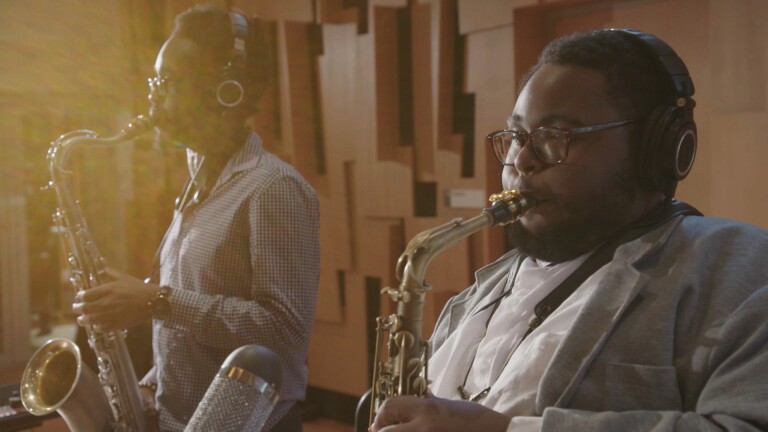
Ghost Clinics
Medicare ripoffs cost as much as $50 billion a year. The criminals are clever. They use phony clinics, patients, and doctors to cheat the system, even as the government steps up efforts to shut them down. But here in Los Angeles, as correspondent Michael Okwu discovered, the scams are still easy to find.
TRANSCRIPT:
James Cole/U.S. Deputy Attorney General [file footage]: The defendants participated in a health care fraud scheme involving nearly $375 million in fraudulent billing to Medicare and Medicaid.
Michael Okwu: In February, authorities announced the largest health care scam in the nation's history.
Cole: ...orchestrated by one doctor.
Okwu: It's the latest sign of what law enforcement officials say is a national epidemic - Medicare fraud:
• $375 million in alleged fraud in Dallas, Texas
• $225 million in alleged phony claims in nine cities
• $100 million in fraudulent claims tied to an organized crime enterprise based in New York and Los Angeles
By some estimates, health care fraud is now as profitable for criminals as dealing drugs.
Sgt. Steve Opferman: We're just seeing these types of businesses proliferate throughout L.A. County.
Okwu: Sgt. Steve Opferman is with the Los Angeles County sheriff's office and the health authority law enforcement task force. He's asked us not to reveal his face because of his undercover work. Today Opferman and colleagues from an alphabet soup of agencies are collecting evidence at a Van Nuys storefront - a shady medical clinic abandoned by crooks.
Opferman: I'm showing you some pictures of what we're finding inside. First of all, this is like an antique MRI machine. One of our medical experts said that, you know, they haven't used this type of equipment, you know, probably since the 80s. So we believe it's just there as a prop to give this business the appearance of being legitimate. In the hallway, in the closet, are boxes full of patient records. There's photocopies of patient's Medicare cards and ID cards. And this is all gonna be used as part of a false billing scheme - in this case to bill for diagnostic services that were never performed.
Okwu: The clinic may look small, but it's been big business for the criminals who used it to rip off Medicare.
Opferman [to Okwu]: Probably around 8 million.
Okwu: Eight million dollars?
Opferman: Yeah.
Okwu: From this little clinic?
Opferman: Yeah.
Okwu: Profit that was all too simple to generate. Here's how it works. The criminals set up a business using the name of a doctor who they've bribed or whose identity they've stolen. Then they steal or buy Medicare ID numbers from real patients, and they use those numbers to submit phony Medicare claims. By the time understaffed government auditors are on to them, the criminals have closed shop, and they're long gone.
Opferman [to Okwu]: These stacks of forms - somebody had already put the diagnosis. So all they're doing is attaching that to a profile, filling out a claim form and sending them in, and being paid.
Okwu: Investigators also found prescription pads stamped with the names of several doctors.
Okwu [to Opferman]: So there is the name of a doctor on all of these prescription pads. What does that tell you about the doctor's role in this clinic?
Opferman: The doctor is either participating in the scheme or his identity was stolen or both.
Okwu: At the clinic down the street, investigators even find paperwork belonging to a doctor who's dead.
Opferman [to Okwu]: Kevin Gohar passed away over a year ago, and I just found his business cards here.
Okwu: A report from the Office of Inspector General released last year found that about a third of the diagnostic testing facilities in L.A. were actually not located at the address on file, or were closed during business hours.
We went looking for some of these so-called ghost clinics with Sgt. Opferman. According to public records, there's a diagnostic business in this building that provides radiology services. But there is no sign out front and nothing in the directory. Opferman says those are telltale signs.
Opferman: So it's a very discreet office building, you know, located above this furniture store. There's nothing on Suite 7 that would indicate any type of diagnostic business.
Okwu: So here it is. This is Suite No. 7. There are other businesses that are open here. You can hear the noise coming from the offices, [knocks and looks through mail slot] but it's 2 o'clock in the afternoon and there's nobody inside this office. The door is shut and it's locked. Clearly there's no business going on inside here.
And take this UPS store in West Hollywood. There are at least 18 medical businesses with a Medicare provider identification number registered to this address, offering services, supposedly, from anesthesiology to surgery.
Glen Ferry: It is frustrating not just as an investigator but as a tax payer that it is this easy. And I know that Medicare is making some improvements, but we still have a ways to go. This stuff is continuing to happen.
Okwu: Glen Ferry is with the Office of Inspector General. He showed us yet another location where criminals billed $600,000 in Medicare charges.
Ferry: We found that this was basically a mail drop for Medicare to send checks for clinics that did not exist.
Okwu [to Ferry]: So this is the door, this is the supposed office to the clinic, right?
Ferry: Correct. This is supposed to be a medical clinic where Medicare was paying over $600,000 to this location.
Okwu: In that case, the criminals - shown here in undercover videotape - were recorded by an agent discussing how to open a clinic using a doctor's identity.
Suspect 1: Okay? And we open the account, we get the money in that account, and he not gonna know about that account, too. And clean it from there. And they not gonna do nothing to him.
Suspect 2: And the doctors that do know, they can claim identity theft anyway.
Okwu: Those men were convicted and are now serving prison time, but for the innocent, unwitting doctors, the fallout can linger for years.
Dr. Anne Peters: It all started with a series of phone calls from various other private physicians saying that you performed an MRI on our patient and you billed them $1,500. And they said they never saw you. And I said, "That's true. I've never seen them and I don't do imaging reports of any type."
Okwu: Dr. Anne Peters says her identity was stolen several years ago by those same crooks who opened that phony clinic in downtown L.A. They opened another ghost clinic in Van Nuys using her name and information. She was later surprised to see that paperwork.
Peters: It looked like somebody in first or second grade had hand-penciled it, had spelled my name incorrectly, had spelled my medical school incorrectly, had me being born in the wrong place. Um, I think they had my correct birth date and that was about the only thing - and they had the correct medical license. But all the other information was either misspelled or the wrong information.
Okwu: That didn't stop Medicare from sending $750,000 to this rundown office building. Eventually, the agency figured out that the charges were fraudulent and asked Dr. Peters to pay them back.
Peters: They were sending me claims for the additional $750,000, which they had already paid out to this phony racket group.
David Juberg [to an audience of senior citizens]: Here is information on how to protect yourself from Medicare fraud.
Okwu: You may be wondering why "? if the signs of fraud are so obvious - more isn't being done about the problem.
Juberg [to audience]: Never, ever, ever give your Medicare number to anyone except the doctor.
Okwu: David Juberg is trying. Juberg volunteers with the Senior Medicare Patrol. He is focused on the first line of defense "? seniors - and cautioning them to guard the Holy Grail, their Medicare number.
Juberg: Protect your Medicare number. That's the only message, really. And don't fall for the scams. If you can protect your Medicare number, that drives this whole thing. They cannot bill Medicare if they don't have a Medicare number.
Okwu: On the day we met him, Juberg spoke to a concerned audience in Inglewood. Many of those listening had firsthand experience with would-be identity thieves.
George Jones: They was offering me a wheelchair.
Okwu: George Jones says someone called him just the week before to say they could get him a wheelchair.
Jones: And I said, "No, I better talk to my doctor first."
Okwu: Jones says he didn't offer his Medicare number - a good thing since he probably wouldn't have seen that wheelchair.
Ferry: That's a total scam. Medicare will not call you and say that you should get a wheelchair. On a high-end power wheelchair, the crooks are making about $6,000 per chair. In Orange County and L.A. County, this fraud is still rampant.
Okwu: The Obama administration says it has stepped up efforts to prevent health care fraud and that the government recovered $4 billion last year. But critics say the system still makes it too easy for cheaters. Right now, the government pays claims first and asks questions later.
Ferry: It's a pay system, a trust system. As long as the paperwork looks good on the surface, they allow them to bill Medicare. Right now it is pretty much a right to bill Medicare. We want to make it a privilege.
Okwu: Remember that government report on diagnostic clinics in Los Angeles? It recommended that the center for Medicare services stop allowing new diagnostic facilities. So far, that hasn't happened.
Opferman: This could all be prevented if there were safeguards put in place. I would start looking at every provider in L.A., and then I would send inspectors out. You know, like, create a grid, go block by block.
Okwu [to Opferman]: And if I told you that that's a pipe dream, you would say...?
Opferman: Yeah, it's a pipe dream.
Okwu: Experts say the government is going to have to focus as much on preventing fraud as on detecting it. But the stakes are getting even higher. The number of Medicare beneficiaries is projected to double in a generation, flooding the system with that much more cash and, for criminals, that much more incentive.
I'm Michael Okwu, for SoCal Connected.

